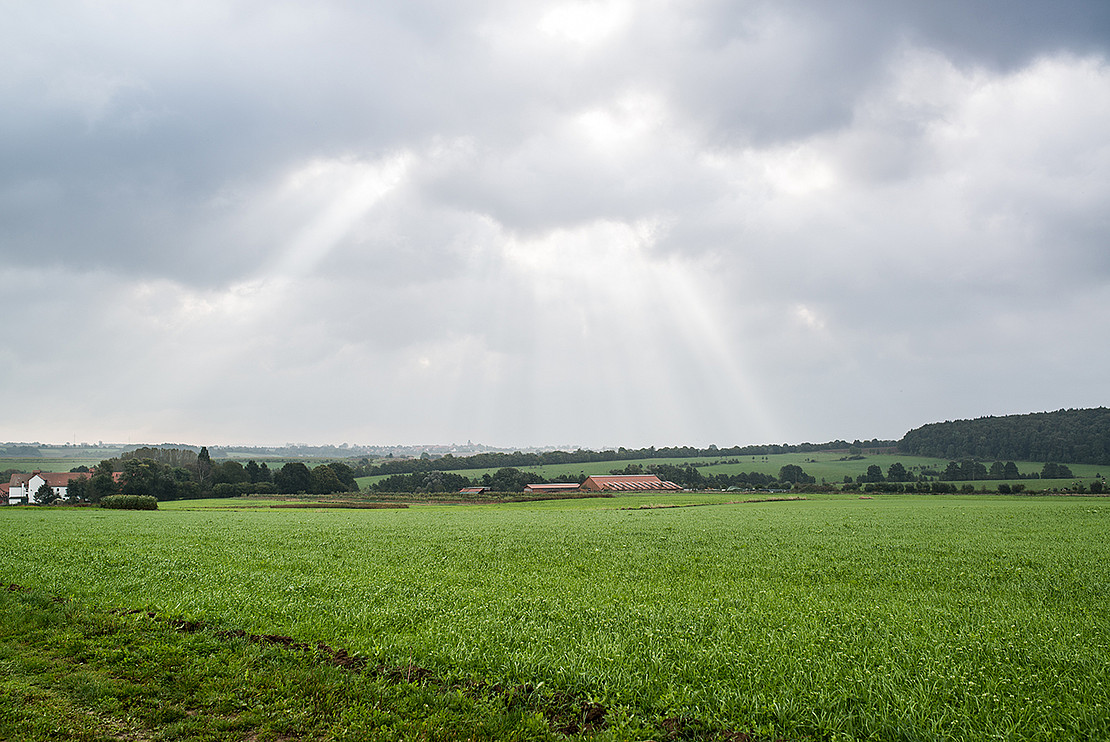This page contains automatically translated content.
New online portal for bioenergy villages
 Image: University of Kassel / Paavo Blafield
Image: University of Kassel / Paavo BlafieldThe joint project "Innovative concepts and business models for sustainable bioenergy villages - climate-friendly, democratic, close to citizens" of the University of Kassel and the Georg-August-University Göttingen has opened the portal: "energiewendedörfer.de". Here, the more than 200 established bioenergy villages and those villages that are on their way to becoming bioenergy villages will find valuable information on possible future business fields in order to continue to operate their energy plants economically after the first EEG subsidy expires after 20 years.
The focus of the three-year research project, in which the University of Kassel with its departments of Microeconomics and Empirical Energy Economics and Solar and Plant Engineering and the University of Göttingen with the Department of Cartography, GIS and Remote Sensing of the Institute of Geography are involved, is on sustainable business fields and the long-term economic operation of bioenergy villages.
Fourteen recommendations for action in this regard from the areas of residual material utilization, alternative energy crops, optimization of value creation through circular economy, future electricity marketing, efficient heat grids and sector coupling of bioenergy with other renewable energies provide the operators of bioenergy villages with insights into the state of research and the implementation of new business models in practice. Recommendations will continue to be updated throughout the remainder of the project (through January 2022). The cooperation with the bioenergy villages Krebeck/Wollbrandshausen and Altenmellrich/Anröchte in so-called real laboratories complement the scientific methods and business models can be examined here under practical conditions for feasibility and economic viability.
GIS map with search function: In addition to the recommendations for action, bioenergy villages can also find out about the activities of colleagues - a GIS map enables a targeted search for technologies used in villages or one can find other bioenergy villages in one's own region or in other districts.
There is no silver bullet for the continued operation of all bioenergy villages. The villages differ, among other things, in their project history, plant constellation and corporate form. Therefore, each village needs a tailor-made solution. The transfer platform offers the possibility to deal with new business concepts and to profit from the experiences of others.
The current legal framework does not yet lead many interesting business models for bioenergy villages to profitability. However, the EEG 2021, theCO2 pricing and impulses from the EU give hope for improved framework conditions.
The title of the platform energiewendedörfer.de addresses consciously not only the circle of the bio energy villages, but all villages, which made themselves on the way of the energy turn or plan that. Even for complete newcomers in this field, there will soon be a guide that chronologically shows the steps to conversion to renewable energies. The platform "energiewendedörfer.de" hereby makes an important contribution to the necessary energy and heat turnaround in rural areas.
Background
In a bioenergy village, the goal is to convert the majority of the heat and power supply to the basis of the renewable energy source biomass. A bioenergy village covers at least 50% of its energy needs (electricity and heat) from regionally produced bioenergy. The citizens are involved in the decision-making processes and actively support the idea of the bioenergy village. The bioenergy plants are at least partially owned by the heat customers or local farmers, and the sustainably provided biomass comes from the immediate surroundings. This increases the value added locally. Energy efficiency and energy saving measures are regularly reviewed and implemented. The generation of heat and electricity from biomass can be supplemented by the use of other renewable energies. The joint project is funded by the German Federal Ministry of Food and Agriculture from February 2019 to January 2022 with a total budget of around €630,000.
Internet address: https://energiewendedörfer.de
Contact
Dr.-Ing. Ines Wilkens
Department of Microeconomics and Empirical Energy Economics
Phone: +49 561 804-7949
ines.wilkens[at]uni-kassel[dot]de
Press contact
Markus Zens
Press spokesman
tel. 0561 804-1961
mail. markus. zens@uni-kassel.de